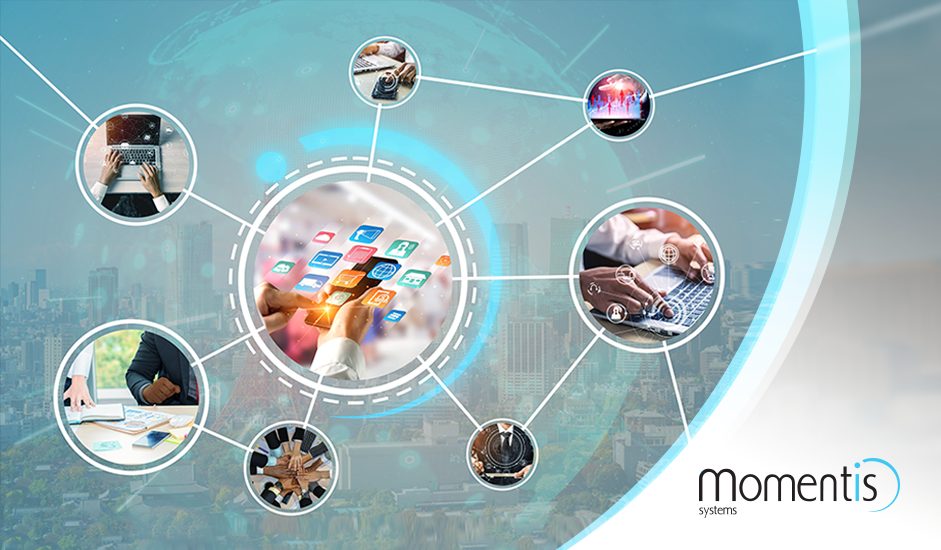
Is it important to have an ERP in 2021?
June 10, 2021If you have never used an Enterprise Resource Planning (ERP)system for your business, the idea of implementing one may seem daunting. Although an ERP system can be costly in terms of investment of time, money, and resources, it can provide the return on investment that your business needs to thrive. If you need a competitive edge to compete on a global scale, then an ERP is likely exactly what your business requires.
Here are some of the benefits of an ERP, and key reasons why it could be the right solution for your business:
- Cost savings
An ERP can provide an excellent ROI, despite the upfront costs of investing in this type of software system. Without an ERP system, it is likely that many important processes involved in your business are performed manually, resulting in stand-alone systems that do not communicate. With an ERP, your operation will improve with access to tools that promote productivity and effectiveness within the organization. The result? Cost savings and staff efficiency. Gone are the days of tracking information through multiple systems, and manually updating multiple systems. An ERP will also eliminate the need to train your staff for multiple softwares and systems, as you will be limited to one—your ERP software solution. The result: cost savings.
- Improved Collaboration
An ERP will allow your company to gain access to centralized data with improved processing. This invaluable payback will inevitably improve collaboration between departments and further reduce costs; having a single source of truth reduces the errors and incorrect data caused by manual work. Your teams will be able to share information from other departments and be confident in its accuracy.
- Better Analytics
An ERP provides a wealth of data from different resources and departments. This excellent business intelligence tool, along with intuitive learning, can compile and generate otherwise time-consuming reports in seconds. Executives will have access to dashboards focusing on sales, booking, comparative data, inventory, sourcing, finance and more. An ERP achieves this with accessible analytics and reports for all areas of your business, allowing your executives to identify key areas of opportunity or concern within the business, therefore enabling your team to make advanced decisions efficiently.
- Improved Productivity
A key reason to implement an ERP is improved productivity. In essence, an ERP should be able to automate your most tedious, time-consuming tasks. Automation significantly reduces the amount of manual work in areas such as the generation of reports, monitoring inventory levels, obtaining multi-department information for analytics, and manual processing of orders.
Data entry is not the most satisfying type of work, and an ERP allows for time to be spent productively, improving your team morale.
The 80/20 goal should be to perform analytics instead of data preparation. A straightforward process of maintaining and onboarding resources will become the norm.
Increased productivity will ultimately allow you to also grow your sales and position your company as a leader while reducing overall operational costs5. Increased Customer Satisfaction
The digital age reshaped not only the way customers shop, but also their expectations in regard to the brands that they support. Free, lightning-fast shipping and returns, online stores, are now the norm.; An ERP will help to streamline the customer experience to result in higher customer satisfaction. Setting up your operation with increased access to real time data will enhance your ability to provide a better customer experience. Increased customer satisfaction builds loyalty, trust, and brand affinity to position you as a leader in your field.
- Be ready for new opportunities
As companies grow and omni-channel demand increases, it is critical to ensure you are positioned with an ERP system that can handle multiple countries, multiple currencies, multiple cost simulations, and more. An ERP will allow easy access to information with an established library of connections to the valuable trading partners that make up your operations, among them retail, marketplace, EDI, WMS, and Supply Chain. Finance, EDI, Ecommerce, Inventory and Demand Management, Logistics and Supply Chain management are all staples of a solid ERP solution that will set you up for a strong return on your investment and position your business to seize new opportunities.
- Establish greater Control
Your EPR provider should allow for re-engineering and the implementation of efficient workflows in all areas for greater control on your business: Demand Management, Inventory, Logistics, Procurement, Supply Chain access, RF and RFID WMS, EDI, Ecommerce B2B and B2C solutions, 3PL connectivity, Business Intelligence, Customer Service and Finance.
Providing access to the Supply Chain, efficiently managing inventory levels, and adhering to standards are major challenges for growing companies when tracking and monitoring their expanding omni-channel fulfillment demands.
Centralizing the processes, combining, and automating tasks, and dealing with issues rapidly, are what is expected as part of the ROI when investing in an ERP software solution.
Do you want to know more about how an ERP can help your business to level up? Contact us today!
*************************************************************************************
The Momentis ERP System was developed for fashion, apparel, footwear and accessory brands, textile, wholesalers, and distributors. Momentis automates and streamlines processes from design to delivery – Product Lifecycle Management (PLM), Sourcing & Logistics, Inventory Management, Warehouse Management, Order Management and Financials – and integrates seamlessly with leading B2C, 3PL, POS and other 3rd parties using EDI and APIs. The Trenza software suite is the latest solution that enables your ERP to effectively communicate with Business to Business (B2B) and Business to Consumer (B2C) solutions, such as Trenza Shop, Trenza Sell, Trenza BI, Amazon, Shopify, Big Commerce, Salesforce Commerce Cloud, Joor, NuOrder, and more.
